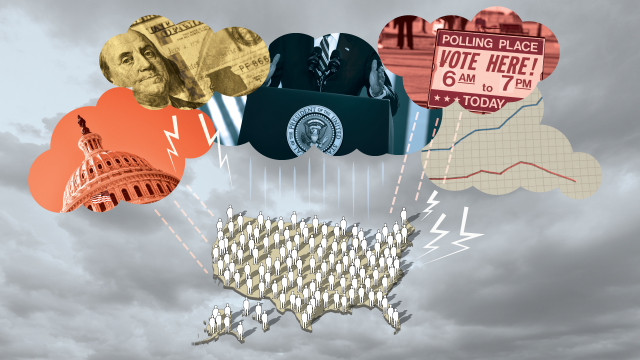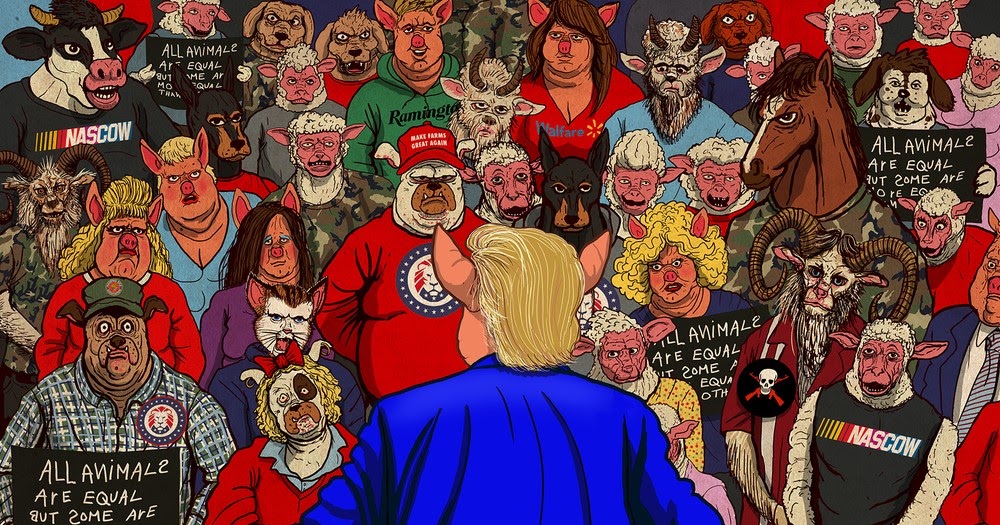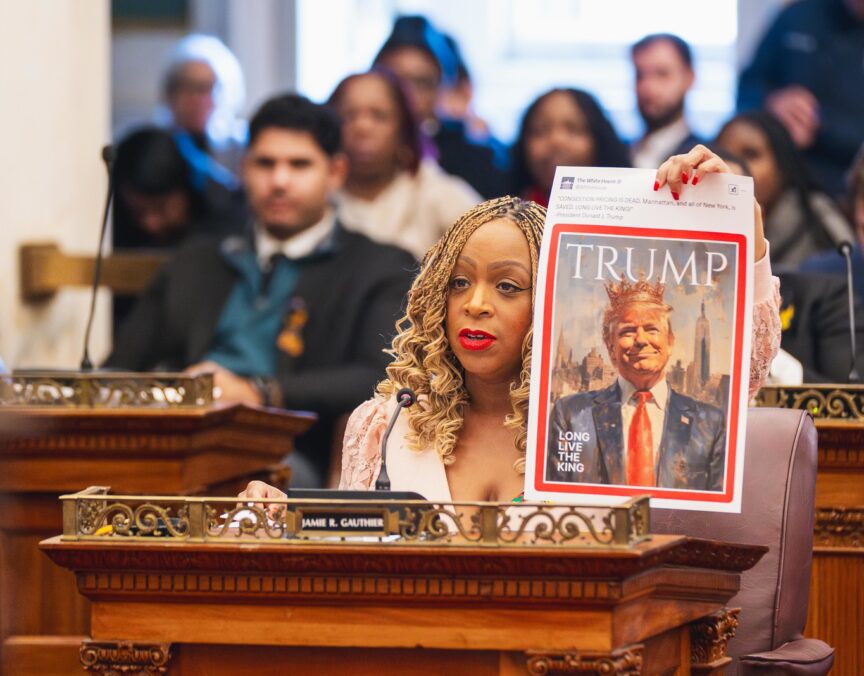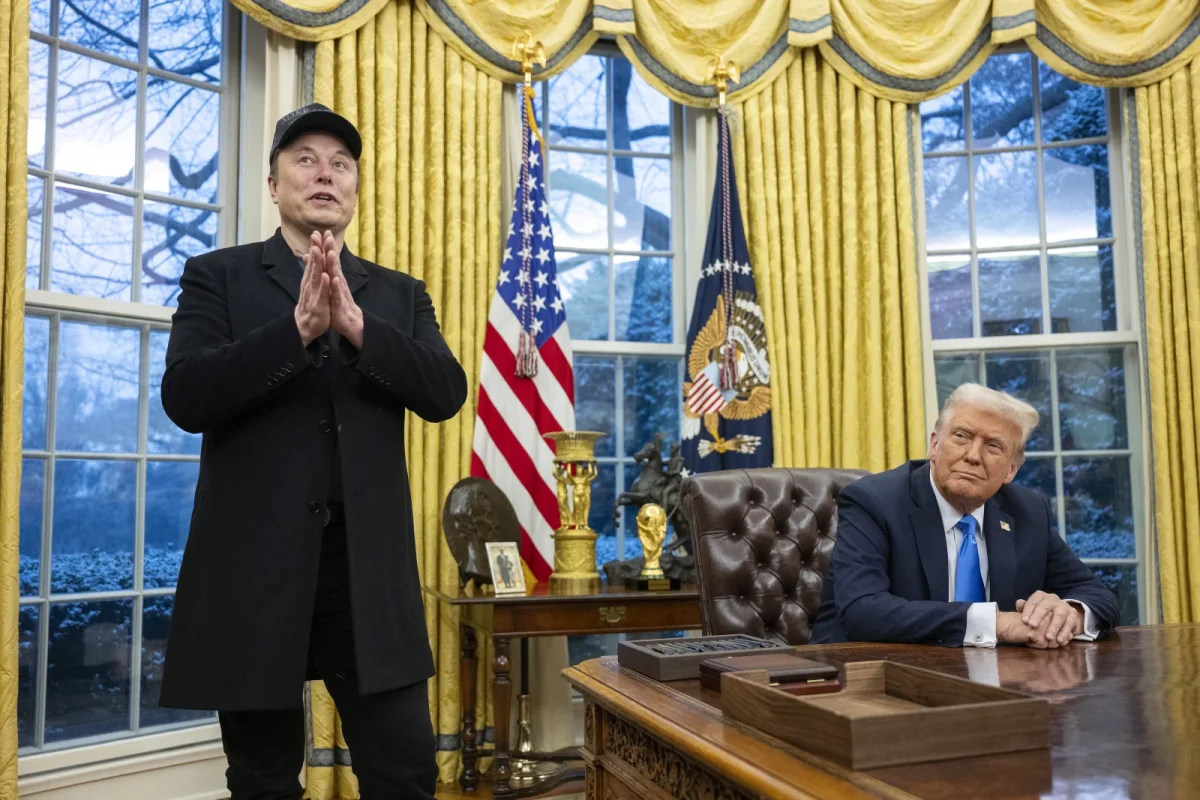The United States of America, once propelled by a utopian vision and a spirit of optimism, now seems indelibly convinced that the only positive outcome they can look for in their vote is avoidance of potential disaster. This fatalistic impression of American politics has never been more widespread than in the discourse surrounding the 2024 presidential election, in which the prevailing sentiment seemed to be that most people, on both sides of the political spectrum, were simply voting for the “lesser evil.”
The most common thread when discussing the election with my friends and family is that while they don’t agree with some, if not most, of their chosen candidates’ politics, there was no better alternative. This feeling is echoed across the nation. People tell me that our system is broken, that the Electoral College, the two-party system and various other aspects of our election apparatus conspire to limit us to the same tired dichotomy every four years.
I disagree. I think that the truth is something much harder to face than the already daunting prospect of election reform. I would argue that the system is working exactly as intended.
In 2005, Russian-born anthropologist Alexei Yurchak coined the term “hypernormalisation” in his book “Everything Was Forever, Until It Was No More: The Last Soviet Generation” to describe the defeatism endemic of life in the Soviet Union in the 1970s and 80s. His thesis was that the USSR was in a state of paradox: everyone knew that the system was failing, but its decades-long propaganda campaign was so complete and successful that no one could conceive of a possible alternative until it was far too late to prevent its collapse.
Despite living in an entirely different political and economic backdrop, we too exist in a period of hypernormalisation. The parallels are too glaring to be ignored: blue-collar workers adrift after their employers moved overseas, young people working multiple jobs still unable to rent an apartment and families displaced and destitute in the wake of massive Gulf hurricanes. These people are the modern equivalents to wheat farmers in Crimea, waiting in lines for bread rations, or Soviet soldiers in Afghanistan fighting a doomed war.
A majority of Americans say that they are dissatisfied with their leaders and that they “run for office to serve their own personal interests,” while less than 10% believe that our government is responsive to the needs of ordinary citizens. Yet, they continue to vote for the same two parties and believe that it will be different each time. It will not be.
The reason for this stagnation, and a primary symptom of the effect described by Yurchak, is what I would describe as a state of “post-politics.” This should not be mistaken for a collapse of the political system, quite the contrary. It redefines what it means to conduct politics. Politicians at the highest level no longer resolve hard choices with compromise and discourse. Instead, they spin simplistic, shallow narratives intended to achieve the same effect that the inundation of propaganda into every part of Soviet life produced: the distraction of the populace from the uncertainty and ambiguity of our times.
The question I pose is why? What shifted in the postwar world to decay the profound idealism shared by those tasked with rebuilding it? To understand the answer, a useful case study is the New York fiscal crisis of the 1970s. The city was facing massive debt due to declines in manufacturing and the unprecedented failure of the municipal bond market. It resorted to borrowing to foot its expenditures, as well as enforcing brutal cost-cutting measures that stripped jobs and services away from its population.
This was considered temporary, but by 1975 the country experienced a recession and the city defaulted on its loans. The result was not only an overturning of the old order of the city but a red-letter day for social democracy in America. The banks understood that they had unprecedented leverage in requesting financial and political changes; the city would collapse if those in charge did not secure their loans. This incident did not occur in isolation; once Wall Street understood what it could manipulate by conditionally withholding funding, it began to firmly entrench itself into halls of power everywhere.
I understand this moment as the day that negotiation and dealing disappeared from the modern political paradigm, and with them the possibility of real, radical change in society. Instead, a new force came to dominate the logic of neoliberal politics: the cold, calculating reality of the market.
This is the crucial concept to grasp if we want to understand the juxtaposition between the persisting dissatisfaction with our leaders and the absence of real alternatives: change is suboptimal for profits. BlackRock, one of the world’s largest asset management firms, uses its Aladdin algorithm to manage $21.6 trillion worth of assets, or around 10% of the world’s financial assets. The catch, however, is that these systems only work if the financial ecosystem they operate in remains consistent with the historical data they were trained on. In other words, the money keeps flowing if everything stays the same.
The American political system has been reverse-engineered by the interests of finance capital to maintain the status quo by any means possible. Any real opposition has failed not because of lack of support or overt resistance, but because the hypernormalisation effected by the massive investment into consolidating media and super PACs by financial interests means that no change can be imagined as possible. Occupy Wall Street was not shut down by federal police nor fell apart because of infighting, but simply had no suitable replacement for the way things were.
What our country needs is a collective realization that the fear-mongering around the “death of democracy” that surfaces in the media every election cycle is a manufactured distraction, as is the policy covertly funded by corporate interests that intentionally divide us. Democracy in the U.S. is already dead. It is a subversion of all that this country was founded on, and serves to enrich those with their fingers on the levers of power.
The only thing left is a thin veneer of political maneuvering by officials beholden to the collection of finance, tech and energy interests that hold the real power. The hypernormalisation must break, or we will all watch the power the ordinary citizen has to determine our leaders dwindle further into nothingness.










